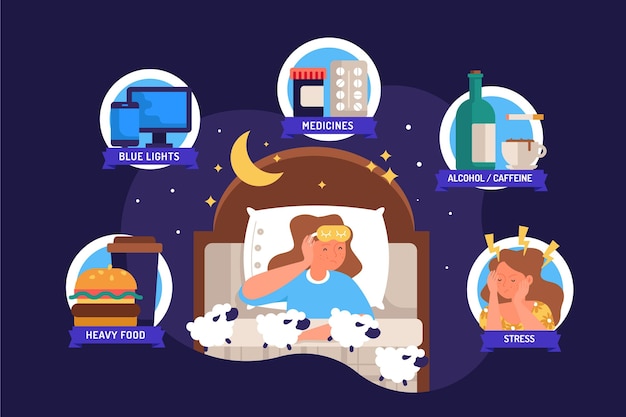
We often overlook how important sleep is. It’s easy to lose a few hours here and there because of things beyond our control, but over time, not getting enough sleep can really affect your health. Not sleeping well can impact every part of your life, from increasing the risk of car accidents to making you moody or even physically ill. So, the next time you find yourself staying up late to binge-watch another TV episode or rising early to beat traffic, think about whether you’re really getting a good night’s sleep.
What is a Good Night’s Sleep?
What exactly makes for a good night’s sleep? It varies depending on who you ask. For new parents, it might be any stretch of sleep that lasts more than a few hours, as opposed to being interrupted by a crying newborn. Teenagers might feel there’s never enough sleep in the world. Doctors have a more specific take, saying it varies based on age and gender. A good night’s sleep should be deep and undisturbed. Here’s a quick rundown of what is generally recommended:
– Newborns (0-3 months): 14-17 hours
– Infants (4-11 months): 12-15 hours
– Toddlers (1-2 years): 11-14 hours
– Young Children (3-5 years): 10-13 hours
– Children (6-13 years): 9-11 hours
– Teens (14-17 years): 8-10 hours
– Young Adults (18-25 years): 7-9 hours
– Adults (26-64 years): 7-9 hours
– Seniors (65+ years): 7-8 hours
Are you hitting these recommended sleep hours? It’s important to stick to a sleep routine rather than just catching up on sleep once in a while.
The Benefits of Good Sleep
Getting good sleep regularly can significantly boost your physical, mental, and emotional well-being. During sleep, your brain prepares for the next day, much like a computer running updates while in sleep mode. Without enough rest, your thoughts become jumbled, your efficiency drops, and decision-making can become a struggle. Lack of sleep has also been linked to depression and even suicide.
According to the National Heart, Lung, and Blood Institute, adequate sleep is crucial for physical health. Sleep is the downtime your body needs. If you keep going without rest, both your internal and external body functions will wear out, leading to health issues. Sleep deficiency is connected to problems like:
– Heart and kidney disease
– High blood pressure, which can lead to heart attacks and strokes
– Obesity (affecting hormones)
– Diabetes
– Fertility and immune system concerns
Good sleep can lead to greater happiness, better health, and more success in your work, school, and personal life. Don’t underestimate its power.
Avoid Dangers with a Good Night’s Sleep
Healthy sleep habits can protect you from various health problems, but they also help keep you safe on the road. Each year, drowsy driving results in about 1,550 deaths, 71,000 injuries, and significant financial losses. Unlike other causes of car accidents, it’s hard to pinpoint when a driver is just too tired. Even brief nodding off can send a car off its path.
While many drivers feel tired daily, you don’t have to join them. To avoid accidents when you’re tired, simply don’t drive. If you start feeling sleepy, pull over safely and take a quick nap or stretch to wake up. Caffeine might help temporarily, but its effects are short-lived. Travel with others if possible, and pay attention to your body’s signals.
Get the Night’s Sleep You Deserve
Getting a “good sleep” isn’t always easy, but it’s essential to strive for it. If you think you might have sleep issues like insomnia or sleep apnea, consult your doctor. For a perfect night of sleep, consider these factors:
– Evaluate your mattress: Is it comfortable and supportive? A bad bed can ruin your sleep.
– Bedroom conditions: Is the room too hot or too noisy? A room that isn’t dark enough can interrupt your sleep.
– Unplug and unwind: Studies suggest that disconnecting from electronics and relaxing before bed improves sleep. Avoid eating, and limit caffeine and alcohol consumption a few hours before sleeping.
It’s never too late to start getting the restful sleep you deserve, every night. Prioritize a good night’s sleep to improve your health and safety—not just for yourself, but for others too.